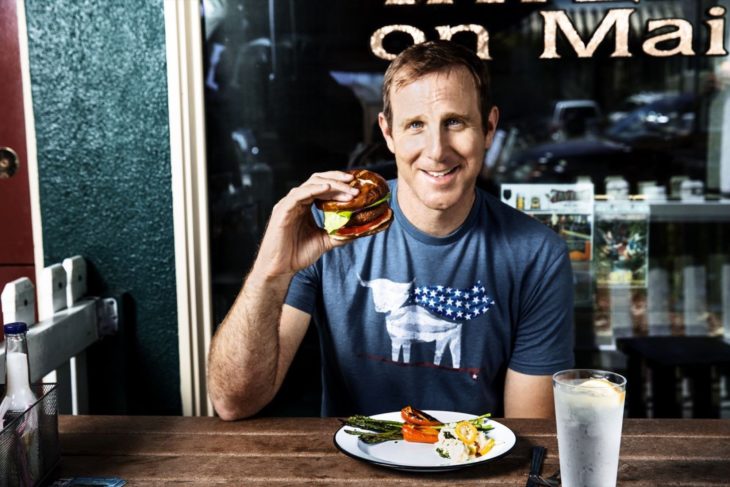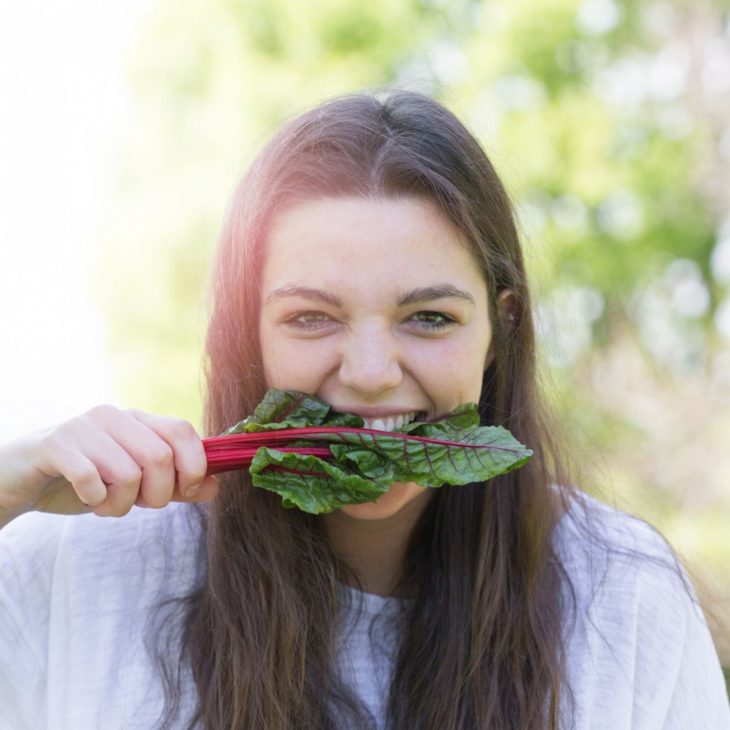My boyfriend and I decided to give up eating meat about a year ago, shortly after we moved to Nashville. We’re pescetarians, so we’re not completely vegetarian, but I’d say we eat a completely meat-free diet about 90 percent of the time. From an outsider’s perspective, our choice makes very little sense. While we lived in Portland, which is a veritable wonderland for vegetarian and vegans (there were three vegan grocery stores, two raw vegan restaurants, and five vegetarian restaurants within walking distance of my house), we happily feasted on brisket, carne asada, pulled pork, chicken, and turkey fairly often. Then, upon moving to the southern U.S., a region known for its mastery of meats, we decided to give it up.
Even living in Tennessee, switching over to a vegetarian diet hasn’t been that difficult. It’s actually been really fun hunting down meatless options at country diners and trendy new restaurants. The hardest thing about this lifestyle change hasn’t been food-related at all, it’s been explaining it to people, and figuring out how to deal with their reactions.

Source: entrepreneur.com
I guess I should start with a brief summary of why I decided to stop eating meat. The short answer is, it didn’t feel right to me anymore. After reading about factory farming, the environmental impacts of a meat-heavy diet, the widespread abuse of animals, and the way they’re treated as commodities instead living beings, my conscience started to nag me. I tried switching over to only buying and eating meat from small, local farms where animals had room to graze and weren’t pumped full of chemicals. This worked out for awhile. Then I saw a photo of a goat being slaughtered on, of all places, the Instagram feed of a local farm. This goat had been raised in the ideal conditions — tons of open space, a healthy diet, lots of loving attention — and was being butchered in the most humane way possible, with reverence and gratitude, and not even to be sold, but to feed a small family for the winter. Still, I couldn’t stomach it. That photo made me realize that killing an animal was a job I could never do personally, and I didn’t want anyone else to have to do it for me.
So that’s the gist of it. I’m aware that my opinions are too rigid for some people, and not nearly strict enough for others, and that’s fine. Giving up poultry and red meats was a personal decision I made because it felt right to me. I never bring this up out of nowhere and I would never, ever lecture other people about their choices. Even so, the topic naturally comes up a lot when we’re at dinner with friends or just chatting with acquaintances. Nine times out of ten, the ensuing conversation makes me want to crawl into a hole.
When people ask why I gave up meat, I don’t usually tell them that whole story (describing a photo of a goat slaughter over cocktails = social suicide). I tell them that I made the decision for personal reasons. I might expound a little bit about the thought process behind it if they ask for more details, but I usually keep it brief, and might even try to change the subject as soon as I’ve answered. Why? Because no matter how I frame it, people get really, really defensive, and tend to respond with long explanations about why they DO eat meat. I’d love to partake in an honest conversation about meat, animals, ethics, and diet choices, but there’s almost always an edge to their replies that makes me really uncomfortable. Their tones imply that they feel personally attacked and must aggressively defend their own diets and/or poke holes in the logic that led me to choose mine. It’s awkward enough that I try to avoid the topic almost as much as I try to avoid eating meat.

Source: newsweek.com
And after a year, I’ve found that avoiding meat is infinitely easier than avoiding judgment, lectures, and awkward confrontations with people I barely know. It’s not that big a deal for me to say, “Hold the bacon,” when I order breakfast at a diner; it’s the interactions with people who take those three words personally that leave me exhausted and confused. People have called me names and made jokes at my expense. They’ve tried to convince me to come back to the meat-eating “team.” I know that some vegetarians and vegans thrive on these kinds of encounters, engaging with detractors and forcefully trying to change people’s minds about eating meat. That’s not my jam. I’m happy to tell you my opinion and experience if you really want to know, but otherwise I’d just really like to eat our respective meals in peace.
If you’re thinking about going meatless, I highly recommend it. I feel great, and it’s pushed me out of my comfort zone in a way that’s fun and challenging. Just be prepared to have some less-than-pleasant interactions with people along the way. While you’re learning new ways to cook tofu, you might also want to learn some new ways to tactfully change the subject. You know, just in case.
Original by:
